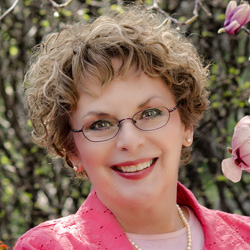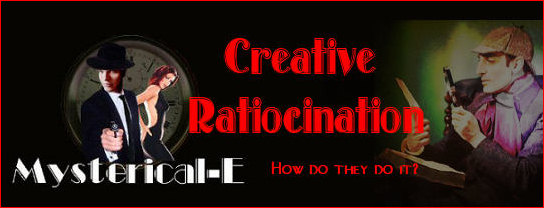| Eleanor Sullivan
interviewed by Barbara Hodges

Taught by her grandmother that her ancestors founded an exemplary community in Ohio, Eleanor Sullivan grew up with an unabashed appreciation that she hadn’t lived then. Strictly religious, their lives were filled with work, demands for cleanliness, and piety. “No, thanks,” Eleanor often said to herself.
Fast forward many decades. Eleanor, widowed with five children, became first an RN, then earned her doctorate, and finally became a professor and dean of nursing at the University of Kansas. She authored award-winning books in nursing, numerous journal articles and edited a professional journal. She has testified before the U. S. Senate, served on a National Institutes of Health council, presented papers to international audiences, been quoted in Chicago Tribune, St. Louis Post Dispatch, and Rolling Stone, and named “Who’s Who in Health Care” by Kansas City Business Journal. .
Ten years ago, she turned her attention to writing mystery fiction, publishing three medical mysteries featuring nurse sleuth Monika Everhardt: Twice Dead, Deadly Diversion, and Assumed Dead. Then she looked for another challenge. Recalling her grandmother’s admiration for their mutual ancestor and the town he founded, she traveled to Ohio again. There she found the village—named Zoar for the refuge Lot found when he escaped Sodom.
Now Eleanor has turned her family heritage into fact-based fiction with a series of mystery novels set in Zoar. The stories feature a midwife and her cabinet-maker husband. Cover Her Body is the first in the Singular Village Mystery series.
WEBSITE: http://www.eleanorsullivan.com/
BMH: You're president of the United States for enough time to only make one executive decision. What is it?
ES: I’d mandate year-round elementary and secondary schooling so the US can catch up with the rest of the world in science, math, and technology.
BMH: What's a common and accepted practice for Americans nowadays that you think we'll look back on with regret?
ES: Allowing access to guns to most everyone. Gun-related deaths keep climbing, but the gun lobby remains powerful enough to forestall few restrictions on access.
BMH: Describe your level of ambition.
ES: I’m very ambitious. That’s why, when I could take life easier, I have no desire to do so. I want to work! And I do.
BMH: What would you attempt to do if you knew that you could not fail?
ES: I’d write a screenplay about my life and get Sally Fields to play me!
BMH: Describe a few pet peeves of yours.
ES: People who talk about themselves nonstop or try to convince others that their politics or religion is the right one.
BMH: How often do you Google yourself?
ES: Hardly ever. I know who I am!
BMH: What do you know now that you wished someone had told you ten years ago?
ES: That writing fiction is harder than writing nonfiction that I’d been doing for 15 years. I read mysteries. How hard could it be, I asked myself. Now I know the answer!
BMH: What childhood event shaped or scarred you the most?
ES: Frequent moves forced me to make new friends quickly, a skill that’s served me well in all my work.
BMH: What is a typical writing day for you like?
ES: I keep to a regular schedule. I’m in the office by 9 and write steadily until noon. After lunch I may finish up the morning’s work, then move on to promotional efforts, blog posts, emails, etc.
BMH: Are you a outliner or a seat-of-your-pants writer?
ES: I always outline. I must have an idea about where my story is going before I can write. It would be like going on a trip without a map without an outline. Of course, a lot changes with the writing but I need at least a starting point.
BMH: Would you rather Live without music or live without TV?
ES: TV, I have to admit, especially detective stories.
BMH: Would you rather be gossiped about or never talked about at all?
ES: Please, let them gossip!
BMH: Do you blog? If so, why and what do you usually blog about?
ES: Yes, I blog. Using all the research I’ve learned about 19th century life in America, I blog to reveal the history behind historical fiction. Some posts include “Medical Care in the 19th Century,” “Crime and Punishment,” and “Childbirth in Early America.”
BMH: Have you ever done a blog book tour? What was that like and would you do it again?
ES: I’ve not done a blog tour but I might try one with my next book. Writing friends say it’s exhausting but worthwhile in sales increases.
BMH: Do you enjoy doing promotion?
ES: Sometimes when people respond enthusiastically. That makes me want to do more.
BMH: What’s the oddest thing you’ve ever done to promote your work?
ES: Agreeing to speak at a book club without knowing if the members would read the book. No one had. They just liked to listen to authors.
BMH: What’s the strangest fan question/request you’ve ever gotten?
ES: After I wrote about a character who hung out in a sleazy bar and gambled illegally, I heard, “I didn’t know you liked to hang out in bars and gamble!” I guess people don’t know that you and your character are not the same.
BMH: Respond to these pairings and tell why you respond the way you do:
a. Series or stand-alone books?
ES: Series, always. If I read a book I like, I want to read more.
b. Lots of research or make it all up?
ES: Always research and lots of it. Accuracy is essential to the story world.
c. Neat or sloppy?
ES: Neat, very. I can’t work in a mess.
d. NY or DC?
ES: NY--always
e. Carnivore or vegetarian?
ES: Carnivore, but I’m trying to cut down
BMH: How have you grown as a writer?
1) What has gotten better?
ES: I’ve learned to trust that the ideas and the words will come and I can better put myself inside my character and in the scene to really feel what my character feels.
2) What things have you dropped along the way?
ES: Trying to follow the outline when the story wants to go elsewhere. Now I let it happen.
3) What helped most in your growth as a writer?
ES: Finding a top-notch, rigorous editor to critique my work. She’s made me a better writer.
BMH: If you were to go to a deserted island for an extended stay what are three things you would take with you?
ES: My laptop computer loaded with ebooks and lots of sunscreen! |





